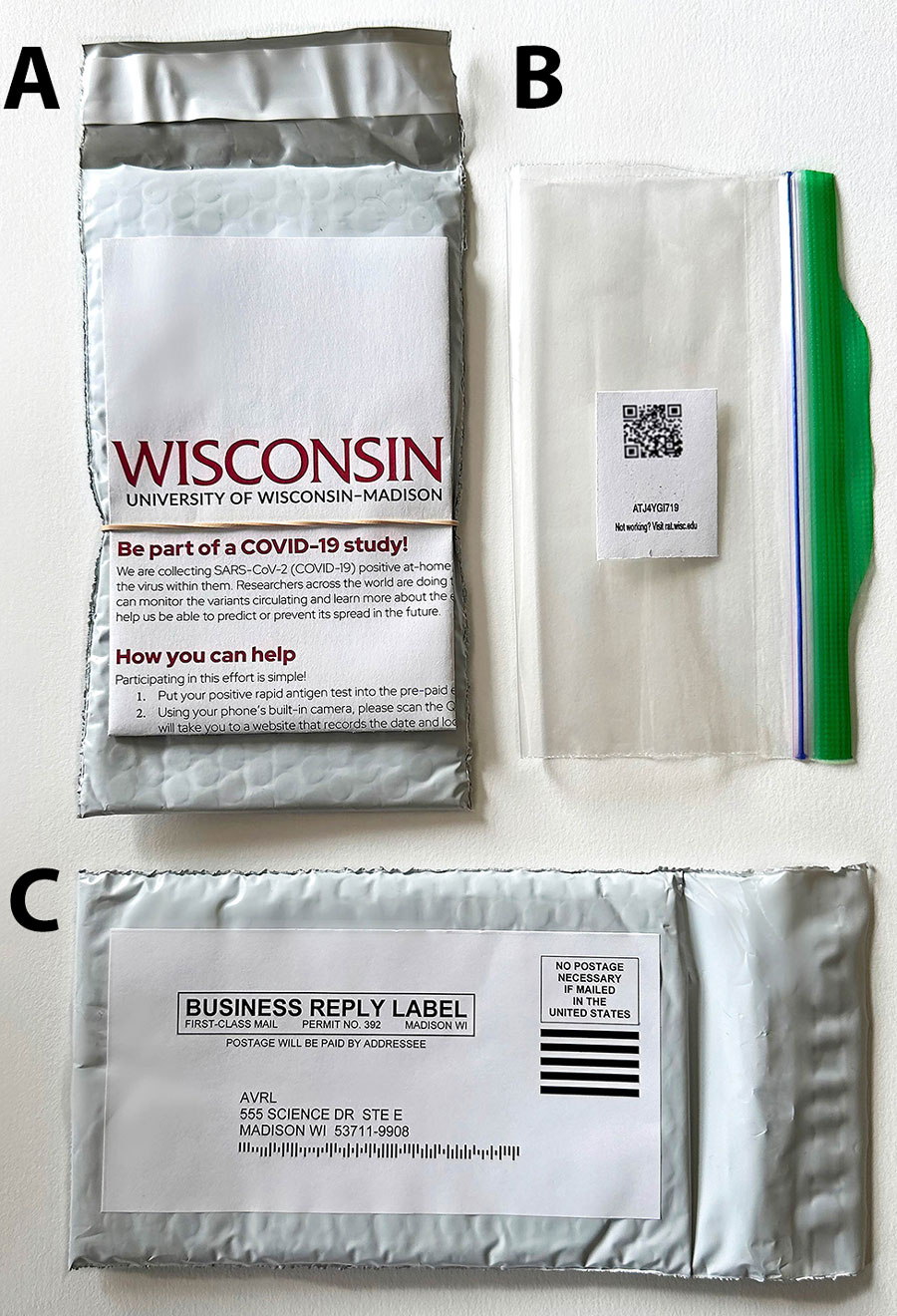SARS-CoV-2 Genomic Surveillance from Community-Distributed Rapid Antigen Tests, Wisconsin, USA
Isla E. Emmen, William C. Vuyk, Andrew J. Lail, Sydney Wolf, Eli J. O’Connor, Rhea Dalvie, Maansi Bhasin, Aanya Virdi, Caroline White, Nura R. Hassan, Alex Richardson, Grace VanSleet, Andrea Weiler, Savannah Rounds-Dunn, Kenneth Van Horn, Marc Gartler, Jane Jorgenson, Michael Spelman, Sean Ottosen, Nicholas R. Minor, Nancy Wilson, Thomas C. Friedrich, and David H. O’Connor

Author affiliation: University of Wisconsin–Madison School of Medicine and Public Health, Madison, Wisconsin, USA (I.E. Emmen, W.C. Vuyk, A.J. Lail, S. Wolf, E.J. O’Connor, R. Dalvie, M. Bhasin, A. Virdi, C. White, N.R. Hassan, N. Wilson, D.H. O’Connor); Madison West High School, Madison (E.J O’Connor); University of Wisconsin–Madison, Wisconsin National Primate Research Center, Madison (A. Richardson, G. VanSleet, A. Weiler, T.C. Friedrich); Public Health Madison Dane County, Madison (S. Rounds-Dunn, K. Van Horn); Madison Public Library, Madison (M. Gartler, J. Jorgensen, M. Spelman, S. Ottosen); University of Wisconsin–Madison School of Veterinary Medicine, Madison (T.C. Friedrich)
Main Article
Figure 2

Figure 2. Research packets distributed for SARS-CoV-2 genomic surveillance from community-distributed rapid antigen tests, Wisconsin, USA. A) Envelope and instructions; B) zip-top bag included in packet with quick response (QR) code; C) return address label. Research packets were attached to SARS-CoV-2 rapid antigen test boxes, enabling participants to send their positive tests to the laboratory through the US Postal Service. A folded flyer (A), attached to an envelope, explained in both English and Spanish the goal of the study and how to participate. Participants scanned the QR code inside the included zip-top bag (B) to document the date and location of their rapid antigen test, then sealed their test strip inside. The location of the scanned QR code was immediately converted to the census block group of the scan and stored in a secure database. Participants returned test strips in the provided envelope, which had a business-reply shipping label (C), enabling participants to mail to our laboratory from any post office drop box.
Main Article
Page created: February 05, 2025
Page updated: May 12, 2025
Page reviewed: May 12, 2025
The conclusions, findings, and opinions expressed by authors contributing to this journal do not necessarily reflect the official position of the U.S. Department of Health and Human Services, the Public Health Service, the Centers for Disease Control and Prevention, or the authors' affiliated institutions. Use of trade names is for identification only and does not imply endorsement by any of the groups named above.
